Now Playing
Current DJ: K-Tel
The Band Tears Of Rage from Music From Big Pink (w/ Bonus Tracks) (Capitol) Add to Collection
Requests? 773-DJ-SONGS or .(JavaScript must be enabled to view this email address)
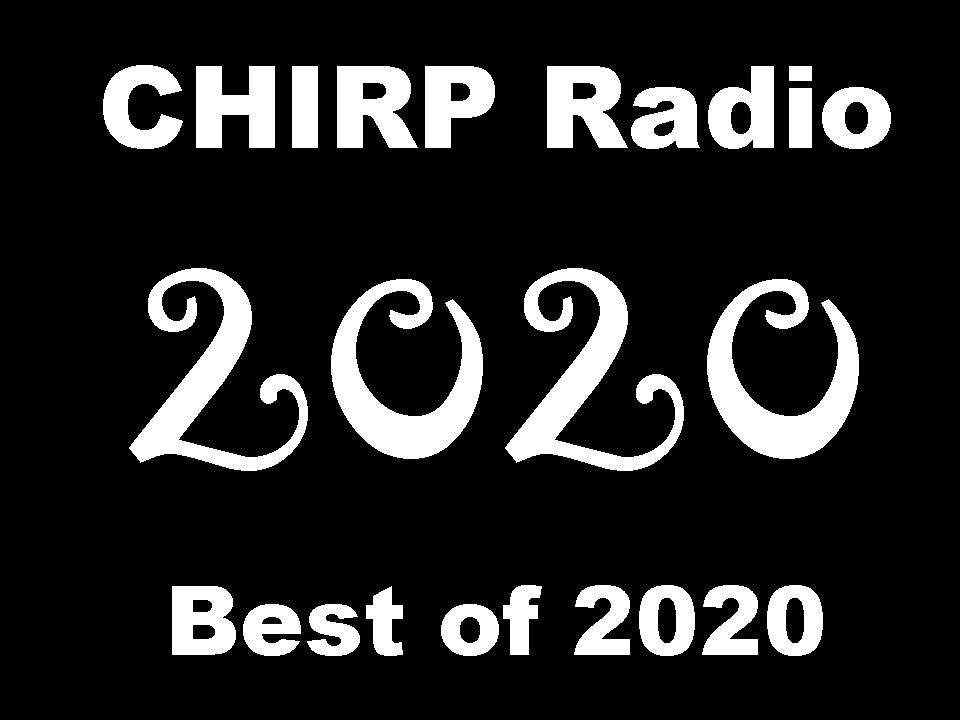
Throughout December, CHIRP Radio presents its volunteers’ top albums of 2020. Our next list is from DJ Mick Reed.
I’ve decided against doing any year end lists for 2020. Partially because of how revolting it is to me that major music publications publish theirs earlier and earlier each year, and partially because of how tedious I find them to read (and write!).
So I’m doing something different. This year I’ve picked out ten records that joined CHIRP’s extensive library this year that I really enjoyed in the hopes that I can encourage people to either check them out or keep them in their personal rotation in 2021.
The list has three criteria: 1) the album has to contain mostly original songs, 2) the has to have been released this year, and 3) I either had to have discovered the album through my work with the station, or otherwise first listened to the album while at the station’s office. My recommendations are listed in alphabetical order by artist below. Enjoy and Happy New Year!
 It's rare to see the traditional industry mechanisms work as smoothly for someone today as they once did during rock 'n roll's epoch, but it does still happen, and Omar Apollo is living proof. His career was launched based on a single song that he financed the recorded of and uploaded to Spotify; from there he got on the right playlist, got signed by an aggressive young and connected agent, did some high-profile gigs, toured Europe, and now has his debut album Apolonio out via Warner Brother Records.
It's rare to see the traditional industry mechanisms work as smoothly for someone today as they once did during rock 'n roll's epoch, but it does still happen, and Omar Apollo is living proof. His career was launched based on a single song that he financed the recorded of and uploaded to Spotify; from there he got on the right playlist, got signed by an aggressive young and connected agent, did some high-profile gigs, toured Europe, and now has his debut album Apolonio out via Warner Brother Records.
Omar definitely has a little Prince in his sound, although this is mostly restricted to his vocal delivery, his guitar work tends to trim closer to the sharp, clear gospel strumming of John Mayer. There is quite a bit of alternative R'nB influence on Apolonio as well, in the neo-soul and soul-psyche vein of sleek young men with beautiful voices like Nick Hakim and Moses Sumney, but Omar never puts down his guitar long enough to embrace this mode entirely.
At the end of the day, Apolonio is a rock album, and a pretty tight one too! It's a short, compact, and manicured, with a well-defined sound supported by some interesting ideas and cool hybridizations, like the heart-aching funk and garage-pop swivel of "Useless," and the spacey, Anderson .Paak-esque melodicism surfing on a dream-pop skiff as heard on "Kamizee." Fantastic stuff. Don't trust anyone who tells you guitar music is dead, because it's clearly found a new vessel in Omar Apollo.
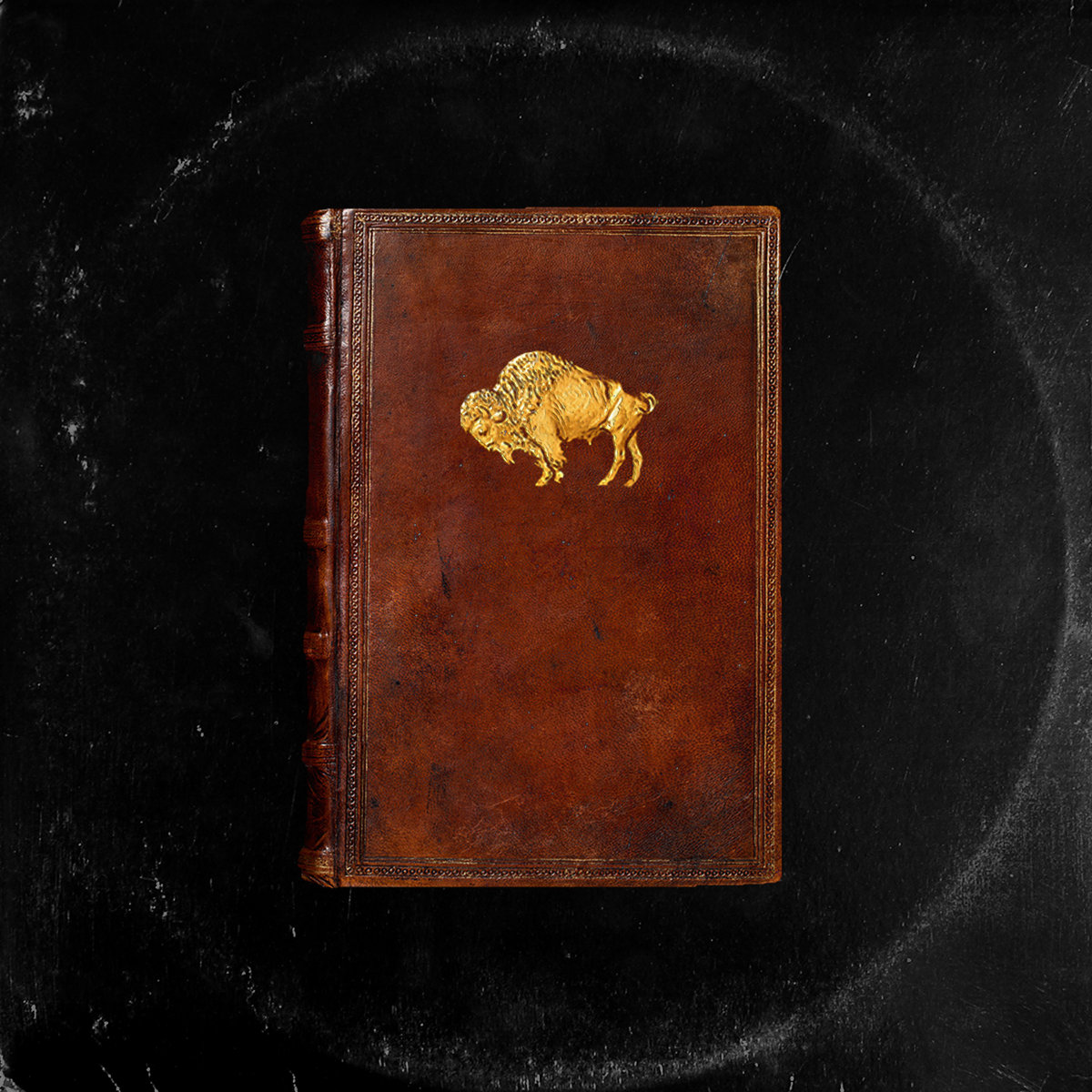 As God Intended is a deeply melancholy album about what it takes to live in America; as a woman, as a black person, as a poor person- each immutable quality providing its own dimension of strife. As God Intended feels like it should be played after a funeral, as it's a complex study of regret, guilt, and relief is cathartic without being escapist.
As God Intended is a deeply melancholy album about what it takes to live in America; as a woman, as a black person, as a poor person- each immutable quality providing its own dimension of strife. As God Intended feels like it should be played after a funeral, as it's a complex study of regret, guilt, and relief is cathartic without being escapist.
The clean and methodical beats are the beautifully mature offspring of Detroit producer Apollo Brown, but Ché Noir is the heart and soul of the record, providing brief moments of gallows humor with her storytelling on "12 Hours," personifying the mean streets that forged her on the ichor-pumping, boombap of "Blood Is Thicker," and speaking to the angst associated with survival and how it taxes the soul on the plaintive, piano-accented “Money Orientated.”
Ché's polysyllabic flow is highly reminiscent of masters of the form like Nas and Mobb Deep and Apollo's beats are both complimentary and deferential to her commanding presence. As God Intended is a remarkably moving and poignant album. I don't know if there is a god or not, but if there is, I think he'd want you to listen to this album.
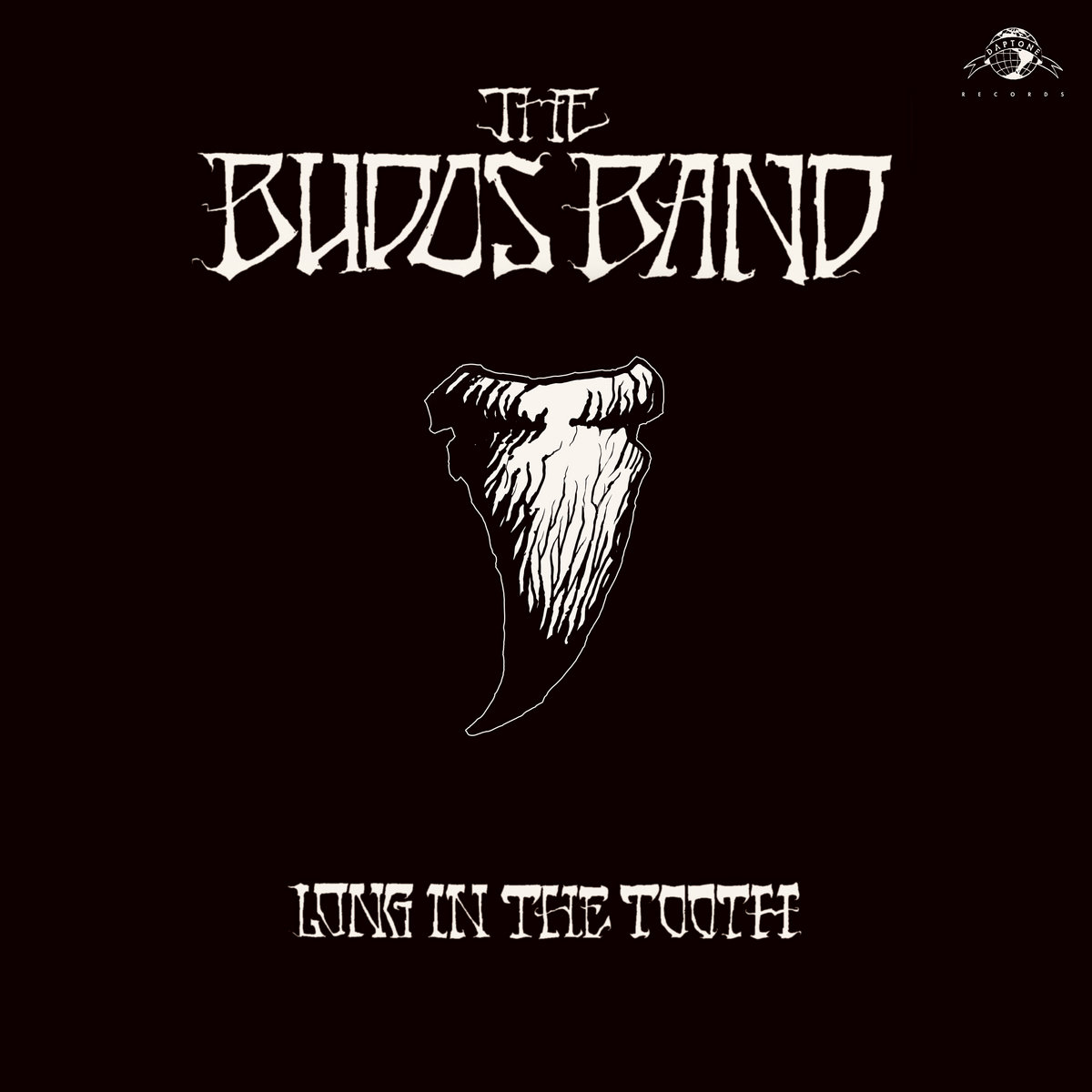 Do you ever feel like a band just... gets you? I make no reservations when I say that The Budos Band is that band for me.
Do you ever feel like a band just... gets you? I make no reservations when I say that The Budos Band is that band for me.
Starting out as a farfisa-funk and African-beat-inspired jazz group, they developed a mid-career obsession with Black Sabbath leading to the adoption of a doom metal visual-aesthetic while somehow managing to cross-pollinate their Ethio-jazz influences with the villainous overtones of down-tuned acid rock.
Every one of their albums sounds, to my ears, like the Devil is throwing me a Birthday party, as I am swept up in the momentum, swaying to the rhythms, bobbing my head hypnotically along with the grooves, and salivating uncontrollably over the large cake in the corner with the blood-colored frosting. I don't even care if it's iced with real human hemoglobin, I'm here and I'm having a slice! I didn't buy a one-way ticket to the happinest club in Hades just to scrutinize the return policy scorched on the back of the ticket; I did it to have a hell of a good time!
Long in the Tooth doesn't add any new sounds to the band's catalog, but "new" is an irrelevant concept when you're as good as Budos Band. How can you perfect perfection? Here's to 15 more years of beastly jazz bravado!
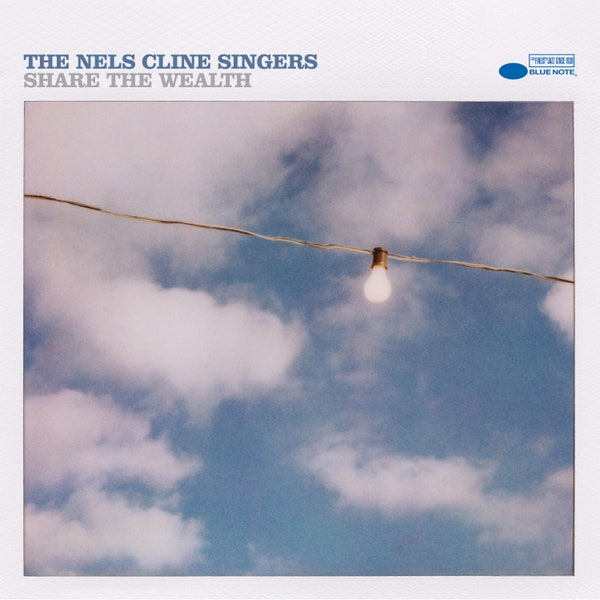 You'd need to write a short novella in order to recite the high points of Nils Cline's career. Sufficed to say, he's a prolific guitarist who’s probably worked with some of your favorite artists in the world of jazz, pop, country, and punk. I wasn't really following his activities very closely before this year, but that has certainly changed after hearing his latest album for Blue Note, Share the Wealth.
You'd need to write a short novella in order to recite the high points of Nils Cline's career. Sufficed to say, he's a prolific guitarist who’s probably worked with some of your favorite artists in the world of jazz, pop, country, and punk. I wasn't really following his activities very closely before this year, but that has certainly changed after hearing his latest album for Blue Note, Share the Wealth.
A deliberate and exploratory tour of soul-jazz motifs that digs, unselfconsciously, into whirling paroxysms of noise and free-jazz frenzies. "Segrunda" sounds like the point in a Ralph Bakshi film where the hero has taken too many drugs and is gripped by a hallucination where he is assaulted by the personification of his personal and moral failings.
"Beam/Spiral" is less chaotic, but exhibits the same level of thoughtfulness and pensiveness as the opener. If you want to get back on the bad trip from earlier, the wah-wah arms-race of "Princess Phone" will get you there, and if you want to close your eyes and float through the stars for a bit, the lush ambient moods of "Headress" is here for you.
My favorite track, though, is easily "A Place on the Moon," which, true to its name, begins with a rocket blast followed by a tense exchange with various species of aggressive extraterrestrials who communicate through a rhythmic pattern of acid-warn organs, contorted guitar chords, and meteor-smashing, martial percussion. Needless to say, I'm going to be spending a lot more time with Nils Cline and his singers in 2021.
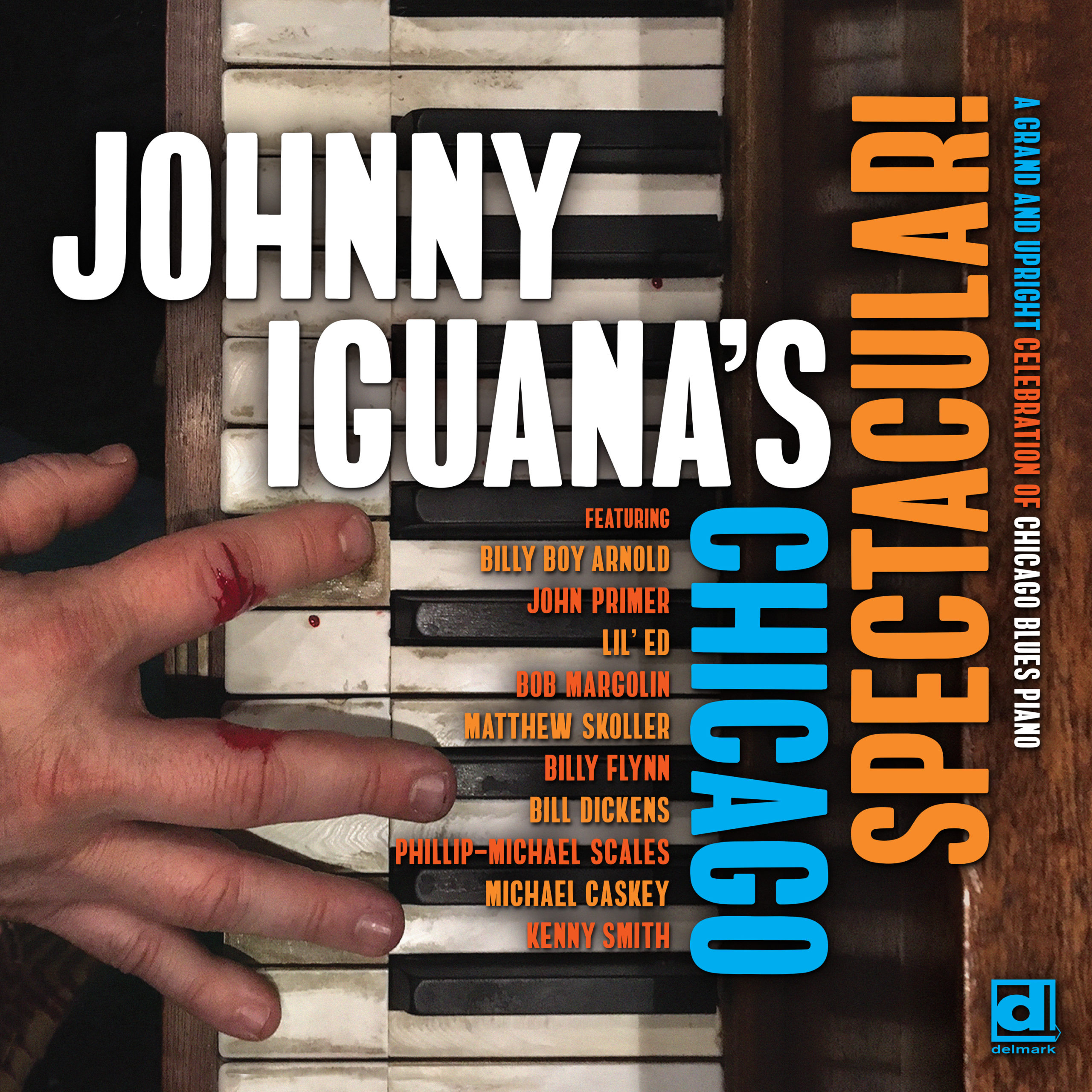 Johnny Iguana isn't from Chicago, but he feel so deeply in love with our fair city's blues tradition as a kid that he moved here just to be a part of its continuing legacy. Making a living as a piano player, he's developed quite a repertoire of standards and original over the years, and now he has a new album out on Delmark, appropriately titled Johnny Iguana's Chicago Spectacular!, so you can continue to enjoy his fierce but frictionless blues piano stylings while safely socially distancing at home.
Johnny Iguana isn't from Chicago, but he feel so deeply in love with our fair city's blues tradition as a kid that he moved here just to be a part of its continuing legacy. Making a living as a piano player, he's developed quite a repertoire of standards and original over the years, and now he has a new album out on Delmark, appropriately titled Johnny Iguana's Chicago Spectacular!, so you can continue to enjoy his fierce but frictionless blues piano stylings while safely socially distancing at home.
Even though this is Johnny's debut album, and he'd be able to justify hogging the spotlight to himself, the Chicago Spectacular! is hardly a one-man show. For Sonny Boy Williamson's "You're An Old Lady" Johnny backs up the jovial harp and hang-dog vocals of Billy Boy Arnold, and for my personal favorite, the Gil Scott-Heron penned "Lady Day And John Coltrane," Johnny provides a distressed piano rhythm that leans wearily over singer Phillip-Michael Scales's shoulder as he recounts the virtuous, cleansing capacity of Mr. Trane’s music as well as that of numerous other jazz greats.
Johnny Iguana's Chicago Spectacular! has helped me appreciate one of our city's richer musical traditions a little more for having heard it, and for that, I am incredibly grateful.
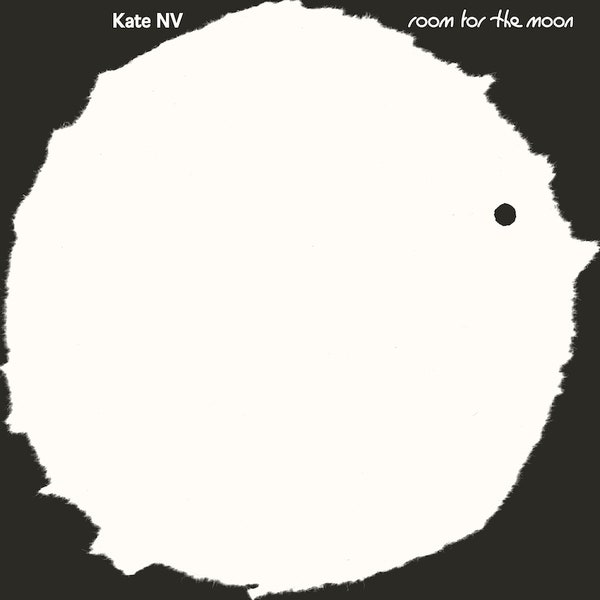 The whys and hows of a Eurasian artist breaching the iron curtain of incuriousness and disinterest that characterize much of the American music press's coverage of... well, basically everything, is a total mystery to me. It does happen though, and Russian avant-pop artist Kate NV has managed to phase through the blockade of apathy to be handsomely rewarded with some much due praise stateside.
The whys and hows of a Eurasian artist breaching the iron curtain of incuriousness and disinterest that characterize much of the American music press's coverage of... well, basically everything, is a total mystery to me. It does happen though, and Russian avant-pop artist Kate NV has managed to phase through the blockade of apathy to be handsomely rewarded with some much due praise stateside.
Kate comes out of a vibrant avant-garde pop scene that has yet to forget the charming but stoic disco dazzle of acts like Ann Steel, whose sensibilities on Room for the Moon, are combined with the lean and determined funk of '80s era Japanese city pop and the buzzy propellant sweep of krauty, neo-futurist experiments in order to raise the specter of utopian artist movements and contains them in a vessel strong enough to restrain their centrifugal tendencies but permeable enough a comforting human warm to escape its pink glowing skin.
This is how Kate views herself. Literally as performing the role of a nest wherein inspiration rests before emerging. She plays the mid-wife, guiding her records into an independent and autonomous existence. It's incredible to see an album with as strong an identity as Room for the Moon produced through such anti-egoist methodology. A validation of the classical conception of the fabled genius, of which other artists, looking to create evocative works, should take note.
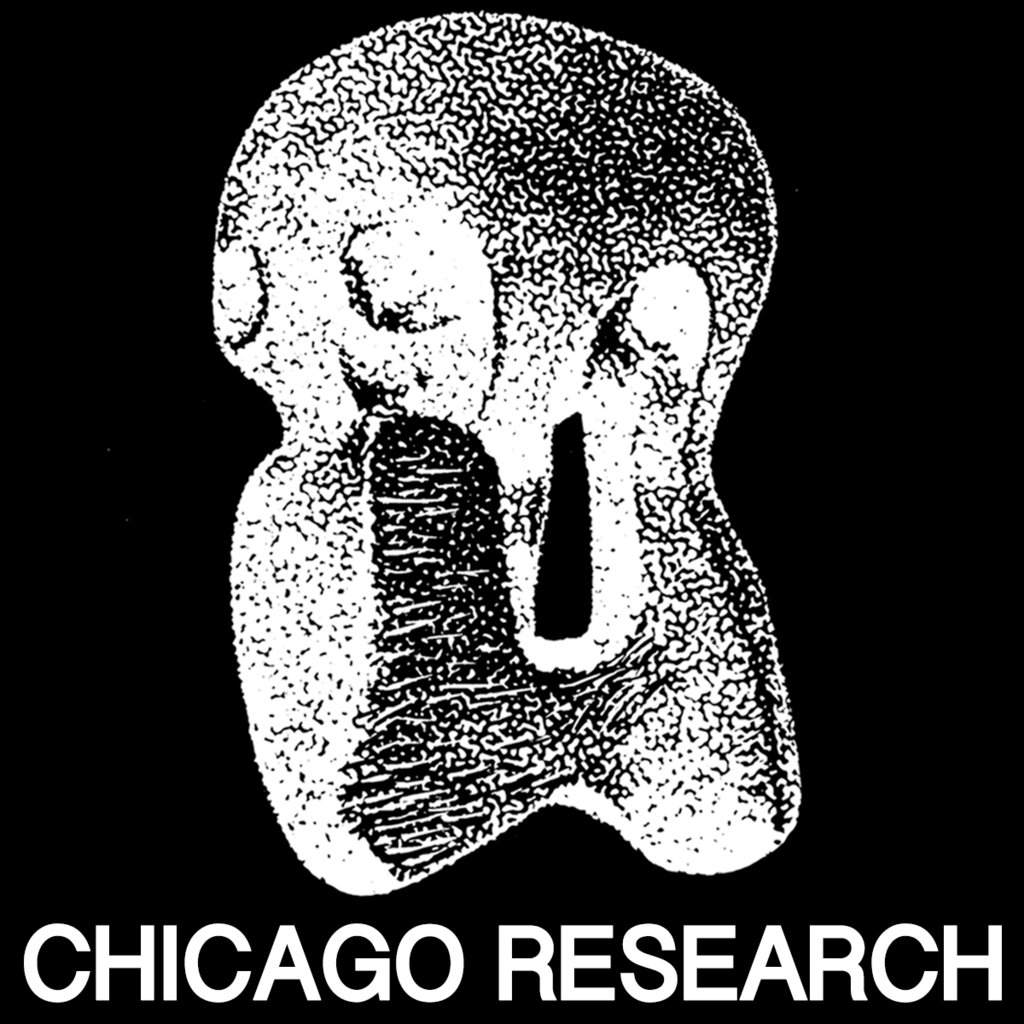 I'm very intrigued by the underground label Chicago Research. They consistently release sparse, otherworldly electronic music that is both solidly constructed and without clear guiding principles and origin. There is logic to their methods, though. I'm just struggling to put my figure on the exact tendencies of its clandestine nature.
I'm very intrigued by the underground label Chicago Research. They consistently release sparse, otherworldly electronic music that is both solidly constructed and without clear guiding principles and origin. There is logic to their methods, though. I'm just struggling to put my figure on the exact tendencies of its clandestine nature.
Of the projects that Chicago Research has released this year, the albums by L.T.F. has been my favorite. They're frilless, yet deep. Textured for maximum tactile effect, yet impossibly smooth. Momentous but paralyzing. I'm honestly not sure what to make of their haunted foundry beats and voluminous, sandy undulations of electronic distortion, which hang in the air like the low-level radiation emitted by most consumer electronics. It just makes sense to me.
If I have a place that I would recommend starting with their Chicago Research catalog, it's Foundation Chicago. The album is a well-rounded introduction to their sound and it begins with a track that samples various birdcalls, which my partner likes a whole lot.
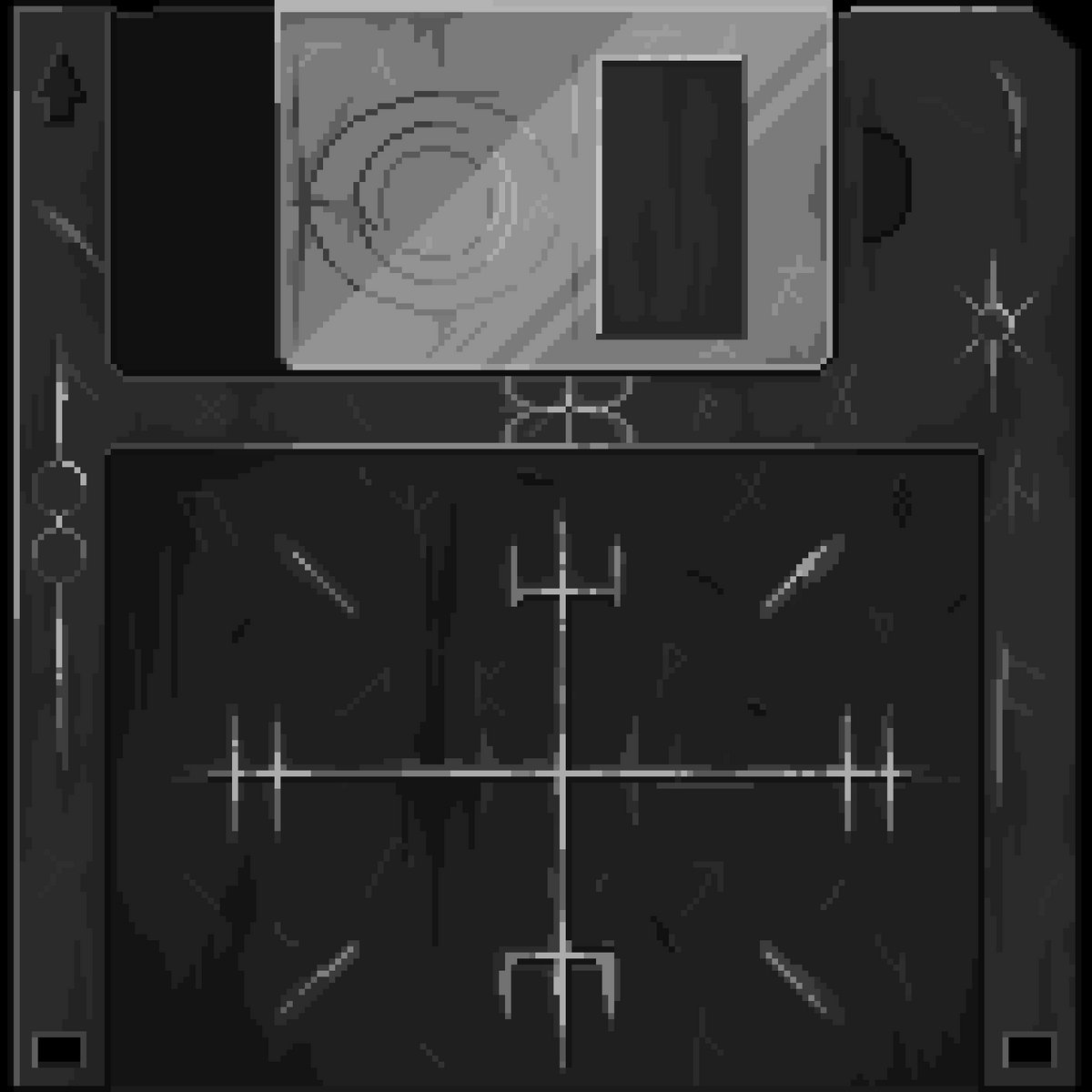 Master Boot Record is the soundtrack to Virtuaverse.ost, a Commodore 64 era, retro- revival, point-and-click adventure game set in a techno-dystopia, not unlike our own- but with better gadgets, music, and wardrobe options. I own it. I've played it. It's amazing.
Master Boot Record is the soundtrack to Virtuaverse.ost, a Commodore 64 era, retro- revival, point-and-click adventure game set in a techno-dystopia, not unlike our own- but with better gadgets, music, and wardrobe options. I own it. I've played it. It's amazing.
The soundtrack for Virtuaverse is written and performed by the lead developer of the game, Victor Love, who programmed it with one other guy on the team, Alessio Cosenza. Programming one of the best games of the year is praiseworthy enough, but Master Boot Record is so epic in its own right that it is absolutely worthy of separate and independent consideration.
Replicating the sky-darkening harmonics of melo-death and the forceful percussive pulse of industrial dance with programs best suited for Chiptunes composing, these tracks are dressing in the scuffed and tarnished leather of darkwave and harsh ‘90s electronic. A perfect score for the imperfect future as it emerges from through the present and dissolves the barrier between the digital and the physical, until we all become like silent nodes in a deteriorating matrix, without motivation or sense of purpose, permanently invisible- even to ourselves, like tears in the rain.
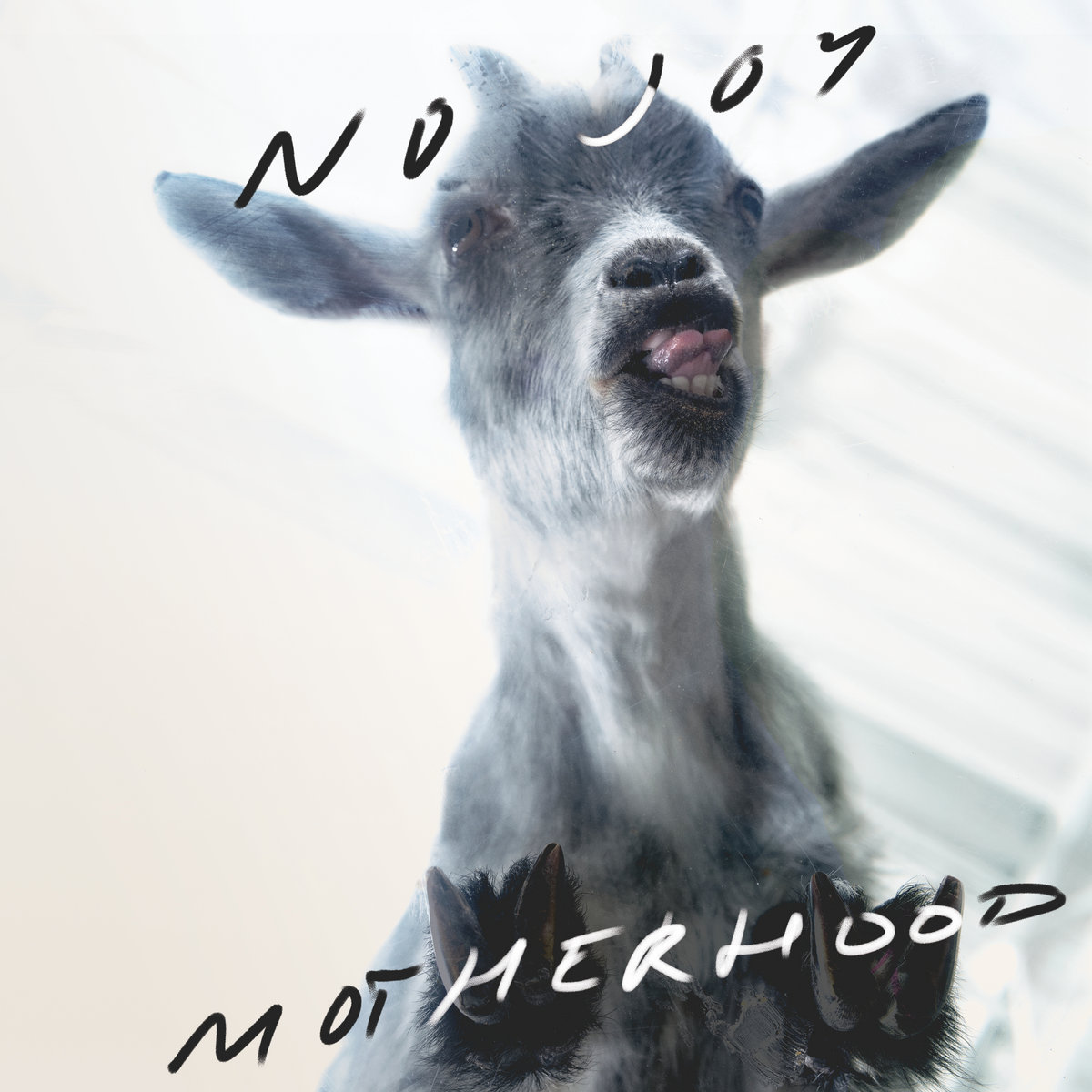 I only follow two shoegaze bands; Nothing and No Joy. And they both released records this year, so, yeah, it was a good year for sneaker peekers, I guess (I have no way of verifying this fact). Even though I’ve been a fan of Jasamine White-Gluz’s work for years, I’ve been terrible at keep up with her, and her latest album Motherhood honestly surprised me when it appeared in CHIRP’s stacks this year.
I only follow two shoegaze bands; Nothing and No Joy. And they both released records this year, so, yeah, it was a good year for sneaker peekers, I guess (I have no way of verifying this fact). Even though I’ve been a fan of Jasamine White-Gluz’s work for years, I’ve been terrible at keep up with her, and her latest album Motherhood honestly surprised me when it appeared in CHIRP’s stacks this year.
Like most of No Joy's catalog, the tracks on Motherhood have an extremely well defined sense of melody that is gratifyingly textured by noisy feedback and unusually agile and turbulent guitar accompaniments. Jassmine's willingness to play around with programmed beats and yacht rocky basslines helps give these tracks a much-needed dose of personality as well.
This is not an album that I expected to want to describe as tropical, but that is definitely an adjective that I would apply to it, especially on parts of the beachy guitar-grinder "Four" and the airy splash of "Fish."
Listening to Motherhood is deeply sad and strangely relieving in its nostalgic and purifying turns, like burning a photo albums full of pictures you and your ex took while on vacation. Pour yourself a glass of something stiff and pull yourself a seat next to the fire.
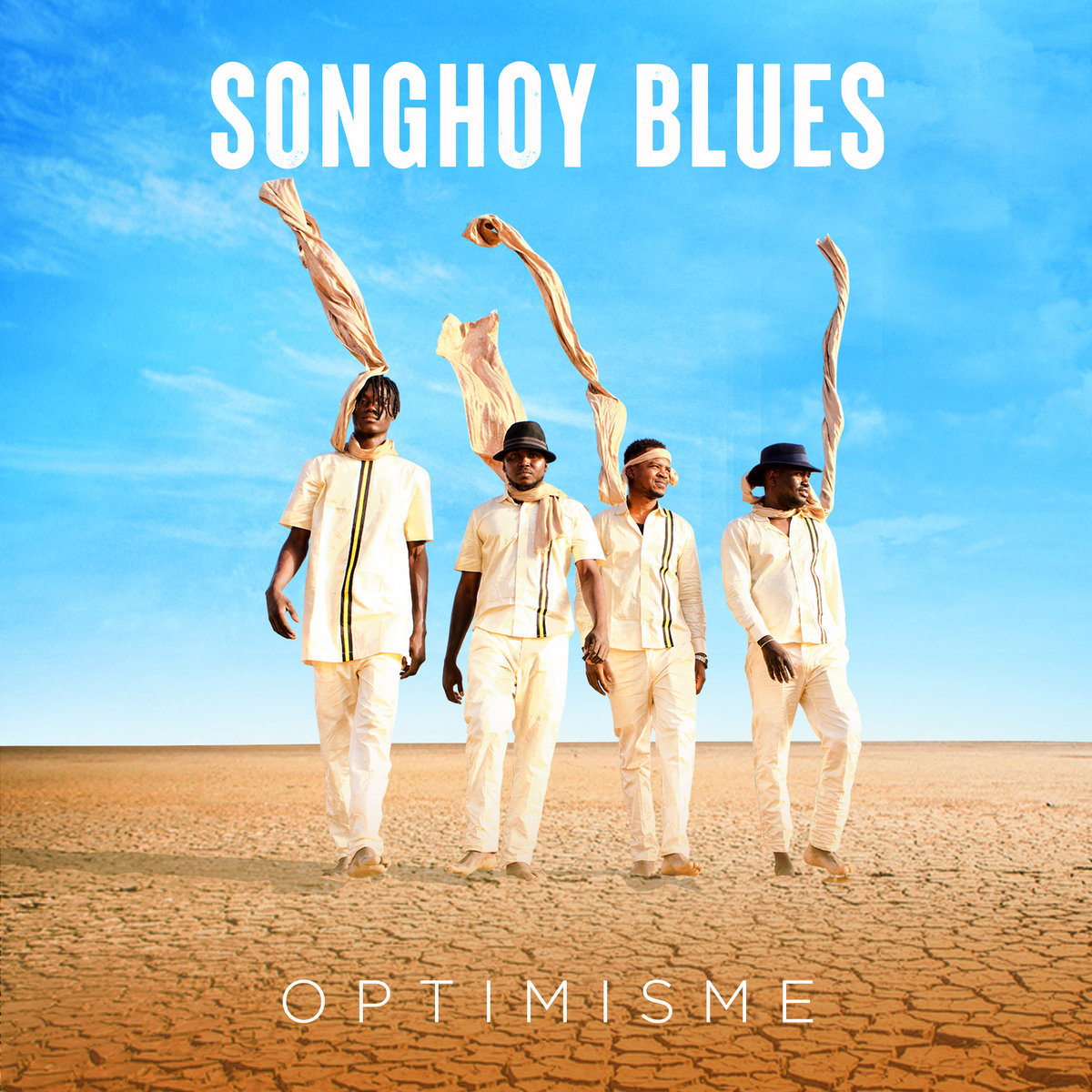 I'm a total sucker for rock bands from outside the US and EU. It's always a delight to hear how bands from how outside my own cultural experiences interpret sounds that I would unthinkingly associate (possibly, arbitrarily) with the western rock cannon as curated by commercial FM radio programming.
I'm a total sucker for rock bands from outside the US and EU. It's always a delight to hear how bands from how outside my own cultural experiences interpret sounds that I would unthinkingly associate (possibly, arbitrarily) with the western rock cannon as curated by commercial FM radio programming.
On that premise, I have to say that Optimisme, the third album from Mali rock band Songhoy Blues, is a singular delight. Sounds and arrangements that I once memorized by heart, but presently have no bearing or impact on my life, feel fresh again when they come from Songhoy Blues. In some ways, this is straightforward, radio-ready rock music, but if that were all it was, then I wouldn't be recommending it.
What works about Songhoy Blues is that there is less of the White Stripes than Boubacar Traoré in them. In other words, they're able to take their country's tradition of desserty, sidewinding guitars and wavering, mirage-like harmonics and translate it into an intelligible blues-rock format, that is immediately recognizable coming from either a Western or African standpoint, but not solely divisible into its constituent parts.
Optimisme is a promising and (there is no other way to say this) optimistic album, that looks emphatically upon the vast swaths of humanity and sees limitless potential for connection and fulfillment. Inspiring stuff. And did I mention that it rocks? Because it flat out rocks!
Next entry: CHIRP Radio Best of 2020: Shawn Campbell
Previous entry: CHIRP Radio Best of 2020: Jenny West